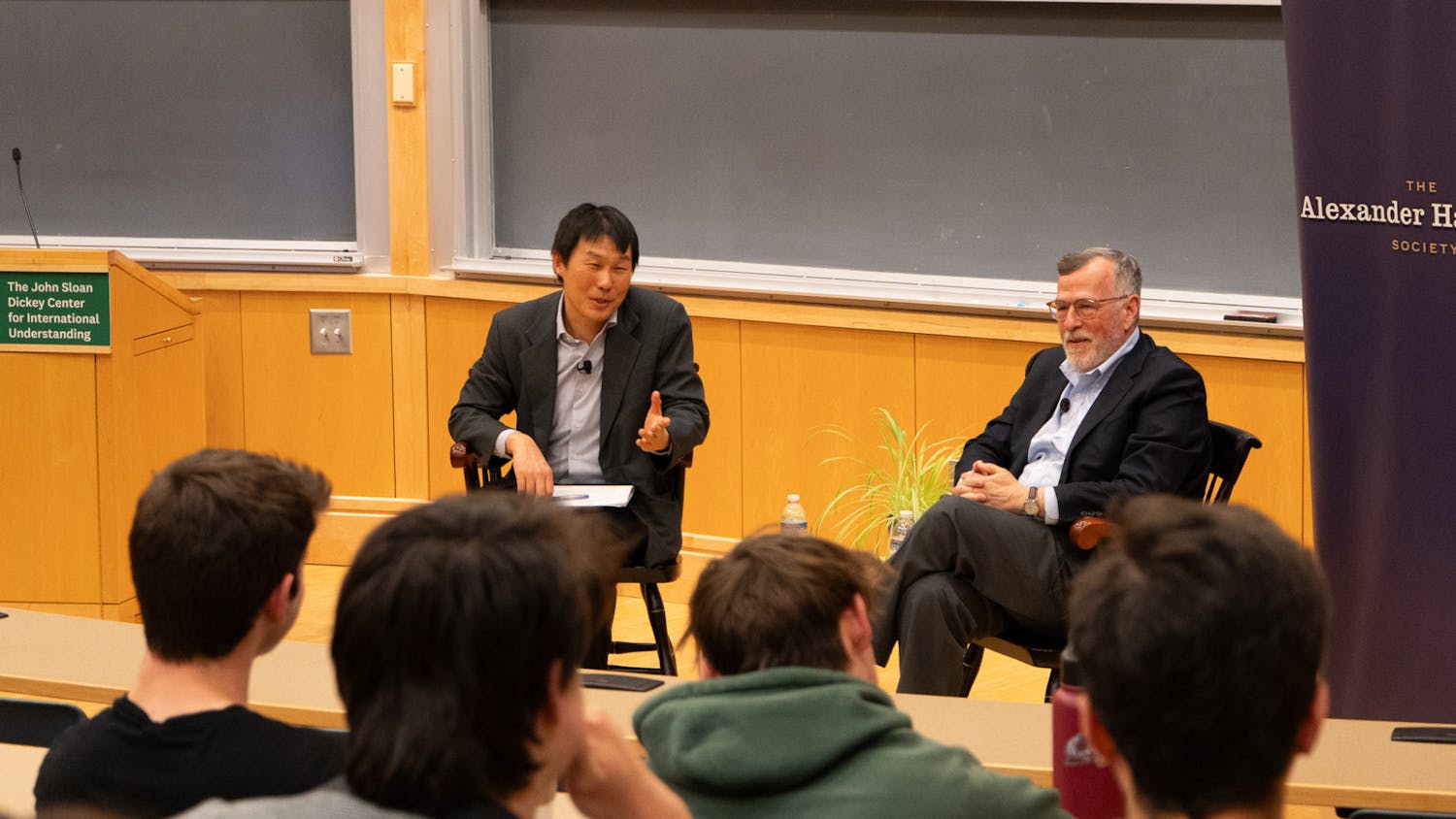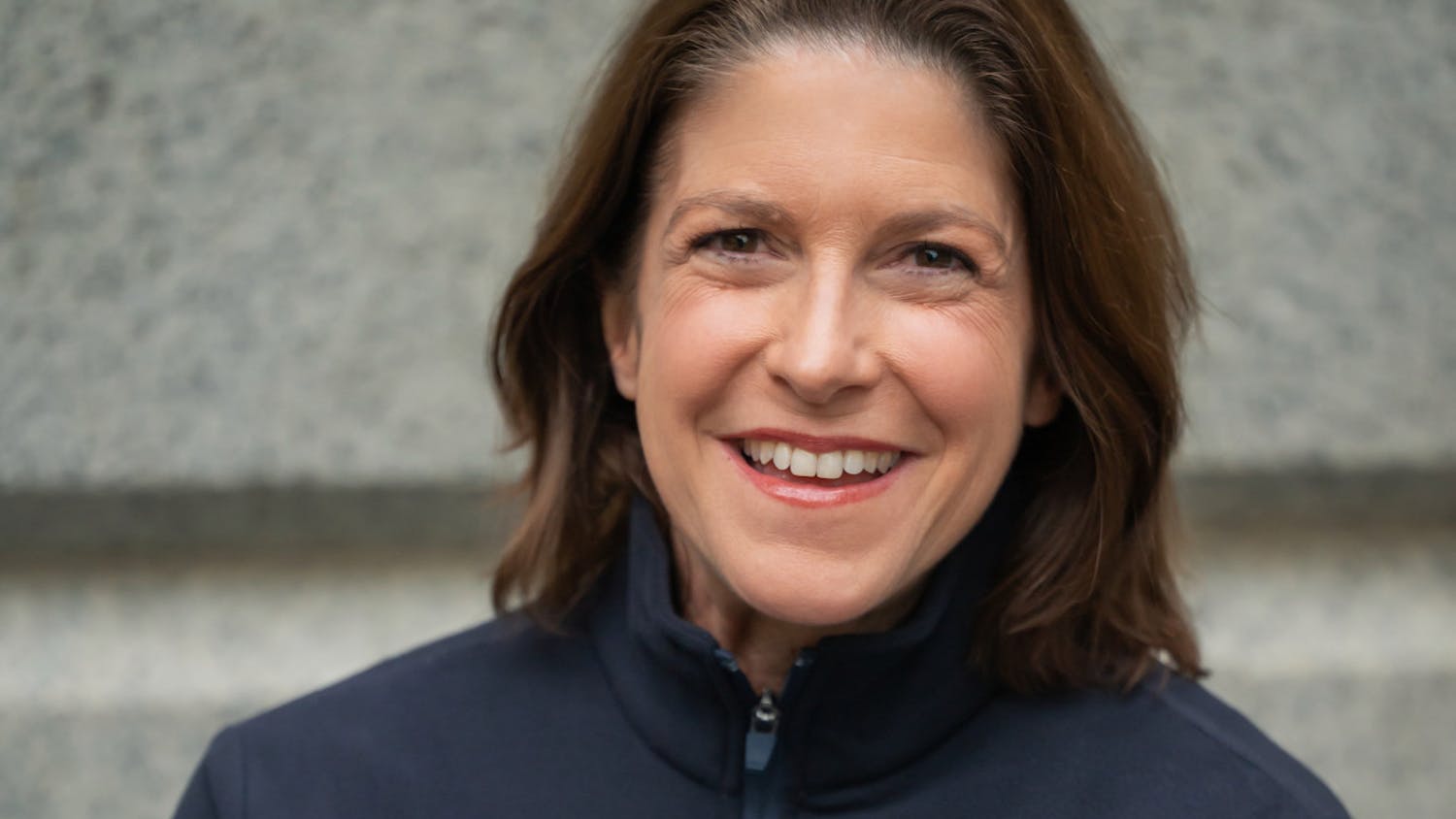In two weeks Arielle Baker Gr’19, a PhD candidate in the neuroscience track of the program in experimental and molecular medicine (PEMM), will officially step out of the lab to tackle a completely different challenge: policymaking.
After receiving the Christine Mirzayan Science and Technology Policy Graduate Fellowship, Baker will have a 12-week position on the Committee of Women at the National Academies of Science, Engineering, and Medicine.
One of her projects will be a study that assesses ways in which certain scientific disciplines can recruit and retain women at higher rates.
As a graduate student at Dartmouth, before Baker knew she wanted to pursue an interest in policymaking, she found ways to make science more accessible to the community. With Emily Stephens Med’17 and other volunteers, Baker led community outreach programs in the Upper Valley to spark an interest in science among middle and high schoolers.
“I think that working in policy is, in some ways, kind of a different form of teaching science,” Stephens said. “When you’re talking to a younger person, you constantly ask yourself, ‘How do I take this very esoteric, complex set of experiments and give it to someone so that they understand it, they don’t feel overwhelmed or out of place in that discussion?’”
“Arielle stood out to us because of her obvious passion and enthusiasm for the issues our committee focuses on — including equity and diversity, scientific excellence, and access to high quality education experiences,” Director of the Committee on Women in Science, Engineering, and Medicine Tom Rudin wrote in an email statement. “Plus, Arielle brings her own set of experiences in supporting equity and diversity as a graduate student in her campus activities, and we look forward to tapping those experiences here.”
In transitioning to policy, Baker has swerved from the traditional trajectory of Ph.D. candidates, a move that Leslie Henderson, a professor of physiology and neurobiology and dean of faculty affairs at Geisel, hopes more students will feel comfortable in taking.
“There’s a whole plethora of other sorts of opportunities a Ph.D. in science will prepare you for,” Henderson remarked. “One of the things that Dartmouth has gotten much better at doing is making PhD students aware of those other opportunities. Having someone like Arielle who has gotten such a prestigious fellowship in this area really highlights these opportunities that our students from Dartmouth can achieve.”
Though she said her neuroscience-specific knowledge won’t be exercised in the same way in policymaking as it would be used in a lab, she says other skills acquired during her Ph.D. will be useful.
“A lot the skills that you learn during a Ph.D. are readily translatable to a number of different careers, policy included,” Baker commented. “Things like gathering evidence, analyzing the evidence that exists, thinking critically about the results of studies and synthesizing information to come up with objective conclusions.”
Coming out of this fellowship with policy-making expertise in addition to her neuroscience background gives Baker a chance to change the field for women in generations to come.
“Arielle is a very passionate person,” Stephens said. “She thinks something is important and she does something about it. It’s important to me as a woman in science to have someone like Arielle representing me.”



